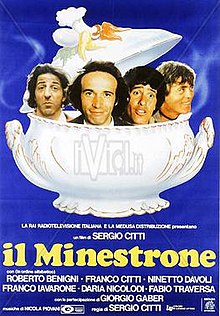
Ranuccio I Farnese reigned as Duke of Parma, Piacenza and Castro from 1592. A firm believer in absolute monarchy, Ranuccio, in 1594, centralised the administration of Parma and Piacenza, thus rescinding the nobles' hitherto vast prerogative.
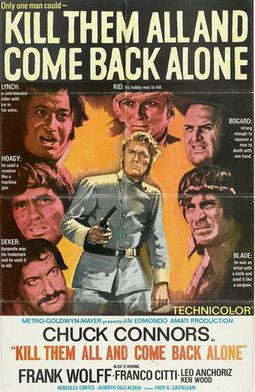
Kill Them All and Come Back Alone is a 1968 Italian Spaghetti Western film directed by Enzo G. Castellari. It stars American actors Chuck Connors and Frank Wolff, and features a film score by Francesco De Masi.

Francesco "Ciccio" Ingrassia was an Italian actor, comedian and film director.

Accattone is a 1961 Italian drama film written and directed by Pier Paolo Pasolini. It was Pasolini's first film as a director and premiered at the Venice Film Festival. In 2008, the film was included on the Italian Ministry of Cultural Heritage’s 100 Italian films to be saved, a list of 100 films that "have changed the collective memory of the country between 1942 and 1978."
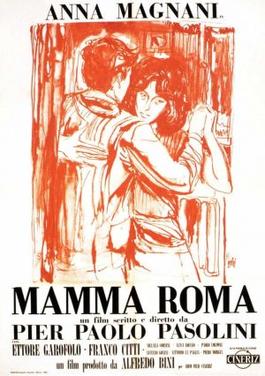
Mamma Roma is a 1962 Italian drama film written and directed by Pier Paolo Pasolini, starring Anna Magnani, Ettore Garofolo and Franco Citti.
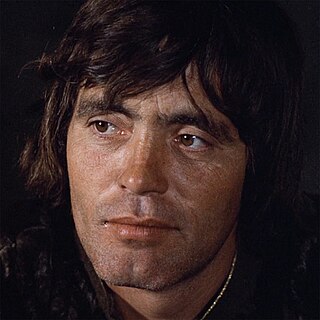
Franco Citti was an Italian actor, best known as one of the close collaborators of director Pier Paolo Pasolini. He came to fame for playing the title role in Pasolini's film Accattone, which brought him a BAFTA Award nomination for Best Foreign Actor. He subsequently starred in six of Pasolini's films, as well as 60 other film and television roles. His brother was the director and screenwriter Sergio Citti.

Bread and Chocolate is a 1974 Italian comedy-drama film directed by Franco Brusati. This film chronicles the misadventures of an Italian immigrant to Switzerland and is representative of the commedia all'italiana film genre. In 2008, the film was included on the Italian Ministry of Cultural Heritage’s 100 Italian films to be saved, a list of 100 films that "have changed the collective memory of the country between 1942 and 1978."

Giovanni Maria delle Piane was an aristocratic Genovese who served as primary court painter for over 60 years in the late-Baroque period. He is also known as "il Molinaretto".

The House of Ruspoli is historically one of the great aristocratic families of Rome, but is originally from Florence. Following World War II and the fall of Fascism, the newly established Italian Republic officially abolished titles and hereditary honours in its 1946 Constitution, with the exception of the papal nobility of Rome, as those titles had been created by papal authority.
Sergio Citti was an Italian film director and screenwriter, born in Rome. He often worked with Pier Paolo Pasolini but also worked for others such as Ettore Scola. His own films include We Free Kings, for which he won a Silver Ribbon for Best Original Story.
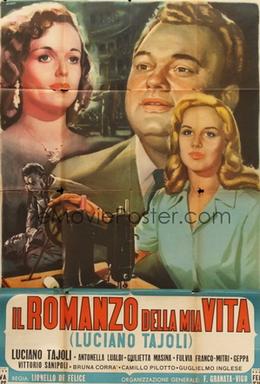
Il romanzo della mia vita is a 1952 Italian biographical melodrama film. It depicts real life events of singer-actor Luciano Tajoli, who plays himself in the film.

A Garibaldian in the Convent is a 1942 Italian historical comedy drama romantic film directed by Vittorio De Sica and starring Leonardo Cortese, María Mercader and Carla Del Poggio. It is considered to be the work with which De Sica concludes the series of light comedies largely set in colleges and institutions for young girls and period costumes to enter into films of more contemporary and popular settings that will result in post-war neorealistic works. It was screened in November 1991 as a part of a retrospective of De Sica's films at the Museum of Modern Art. It was shot at the Palatino Studios in Rome. The film's sets were designed by the art director Veniero Colasanti.

Watch Out, We're Mad! is a 1974 Italian-Spanish action comedy film, directed by Marcello Fondato and starring the comedy team of Terence Hill and Bud Spencer. It was a co-production between Italy and Spain.
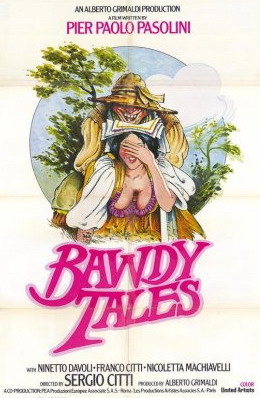
Storie scellerate, internationally released as Bawdy Tales, is a 1973 Italian comedy film directed by Sergio Citti.

Manual of Love 2 is a 2007 Italian romantic comedy film in four quartets directed by Giovanni Veronesi. It is the sequel of Manual of Love and was followed by Manual of Love 3.

Forgive Us Our Debts is a 2018 Italian drama film about a man struggling under the crushing weight of debt who has to work as a debt collector to pay off his creditors. The film was released on May 4, 2018, by Netflix.

The Palazzo del Giardino or Palazzo Ducale del Giardino is a historic palace in the Parco Ducale in Parma. It is not to be confused with the official Parma residence of Marie Louise, Duchess of Parma between Palazzo della Pilotta and Palazzo della Provincia in what is now known as piazzale della Pace - she also lived at the Ducal Palace of Colorno and in the Casino dei Boschi in Sala Baganza. The main Ducal Palace in Parma, the Palazzo della Pilotta and the Reinach Theater were all destroyed in an early morning air raid on 13 May 1944, carried out by the 465th Heavy Bombardment Group of the US Airforce, 781st Squadron, which dropped 9 GP bombs on the city centre.

Simone Moschino was an Italian Renaissance sculptor and architect, born in Orvieto as Simone Simoncelli.

Rose Island is a 2020 Italian comedy-drama film directed by Sydney Sibilia.
